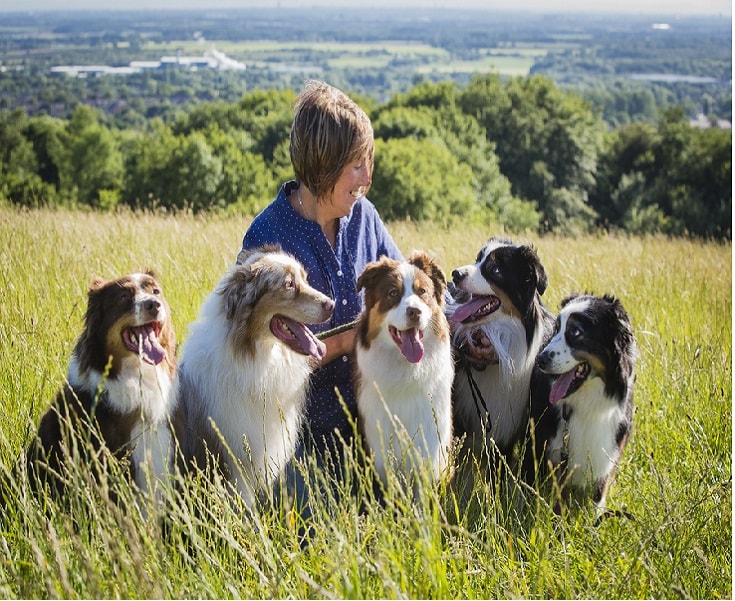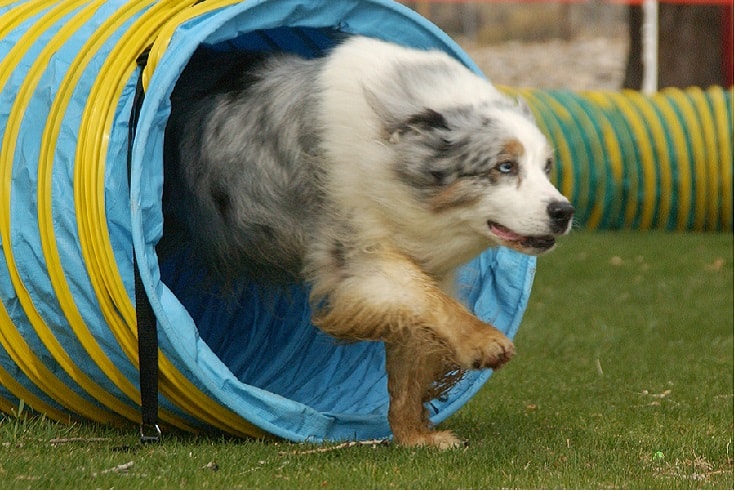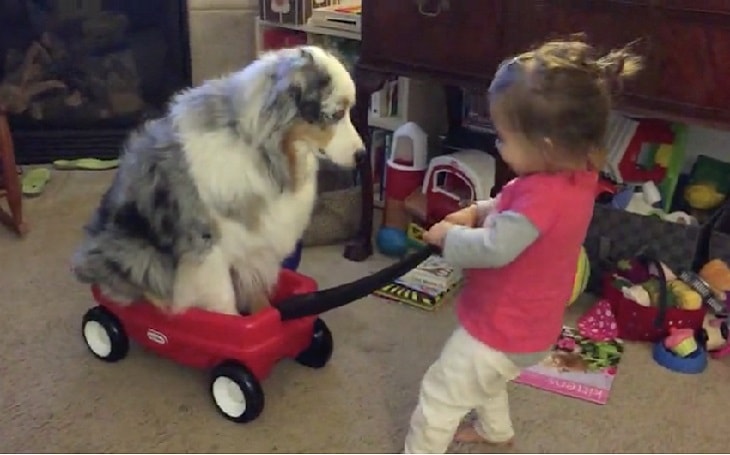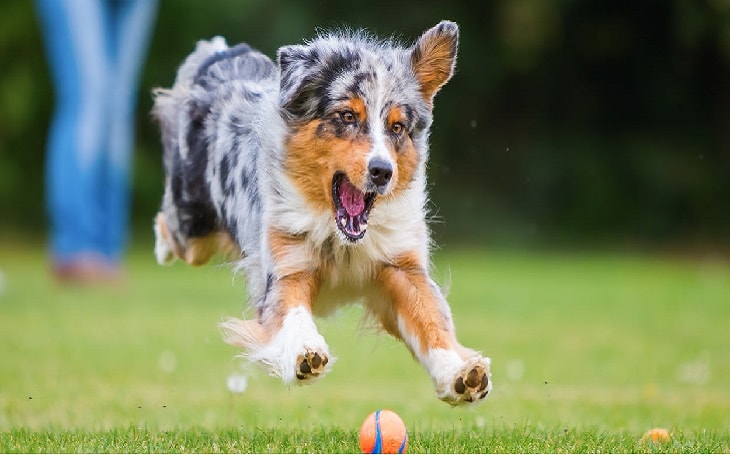Australian Shepherd Dog Breed Information
Australian Shepherd is a medium sized dog with the penetrating gaze in the eye. Australian Shepherd dog’s coat offers a different look and the strong work drive can make them too much good for the pet owners.
Australian Shepherd dogs are highly energetic dogs and require exercise daily. It can be a great family companion if cared properly and given enough time to do exercise and training.
Origin and History
Though the name is Australian shepherd, they came from the western USA, around the time of the gold rush in the 1840s. They were originally bred to herd livestock, and remain a working dogs breed at heart.
The Australian Shepherd dogs gained massive popularity during the world war II years that went hand in hand with a renewed interest in western style horseback riding. Today, the Australian Shepherd remains same eye catching , energetic, clever dog that proved so useful to ranchers and farmers in the old west.
Behavior,temperament and personality
Some Australian Shepherd dogs are outgoing and friendly, while others are shy and reserved. They are highly intelligent

Australian Shepherd can develop separation anxiety and barking will become difficult to handle if they’re bored or left alone. These breeds are not recommended to homes who cannot give them enough time and affection.
Trainability
The Australian Shepherds are easy to train because they are highly intelligent dogs. They are people pleasing dogs and learn quickly with rewards and positive incentives. They do simple obedience training and once they complete the basics they should be given the advanced course.

Australian Shepherd dogs are herding dogs so early training is necessary to avoid the possible herding incentives. Early socialization is necessary to avoid aggression with strangers.
Facts
Some of the facts related
- Australian Shepherds are not actually Australian. They were bred in Germany.
- It gained popularity from Rodeos.
- Native Americans considered them sacred.
- One of the Australian Shepherd was Hyper Hank who won
Frisbee championship in 1970s.
Are they child friendly?
Yes, Australian Shepherd dogs are child-friendly because they are playful and loving towards the children. The good-natured Australian Shepherd can be a great companion for children since both are energetic and rambunctious.

imagesource:urdogs.com
Proper supervision should be made with the children. Never let your child pull the tail or ear of the dog to avoid the possible injuries. The early socialization helps them to behave properly with children.
Health issues
- Hip dysplasia: It is the condition in which the hip socket does not cover the ball portion of the upper thigh.
- Elbow dysplasia: It is a condition involving the multiple developmental abnormalities of the elbow joint.
- Epilepsy: It is a disorder in which
the brain activity becomes abnormal. - Deafness: It refers to more severe to profound hearing loss.
- Progressive retinal atrophy: It is characterized by the bilateral degeneration of lens.
Care
If you have a yard, make sure that you have also got a secure fence that
Australian Shepherd dogs can’t dig or jump over. Underground electronic fencing won’t work for this breed.
Your dog needs an hour of stimulating activity every day. You will need to play toys and mind games with your Australian Shepherd to keep them healthy mentally.
Feeding
It is recommended to give Australian Shepherd dogs 1.5 to 2.5 cups of high-quality dry foods, divided into two meals. Keep your Australian Shepherd
colors
The Australian Shepherd dogs are found in different colors like :
- Blue
merle - Red
merle - Red
- Tricolor(white, black and tan)
- Black.
Puppies
The Australian Shepherd mother dog can give birth to an average of 7 puppies. The puppies should be given dog vaccines at time.
Cost
The cost of Australian Shepherd
Size
The
Which dog breed are they similar to?
Some of the breeds similar to Australian Shepherd dogs are:
- Miniature American Shepherd
- Croatian sheepdog
- Dutch Shepherd
- Border Collie
Visit Doglime for more information on different types of dog breeds.
Tags










